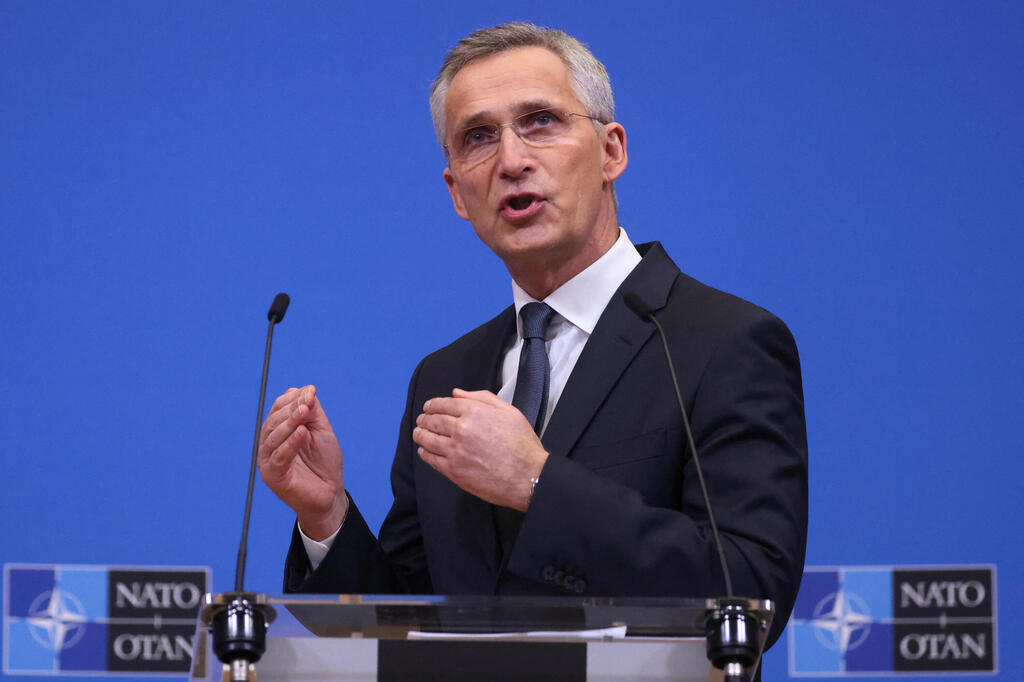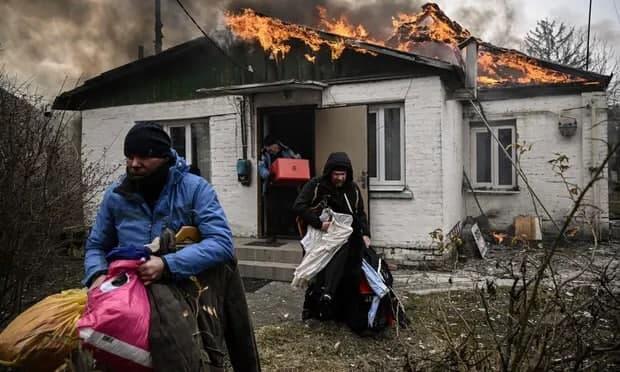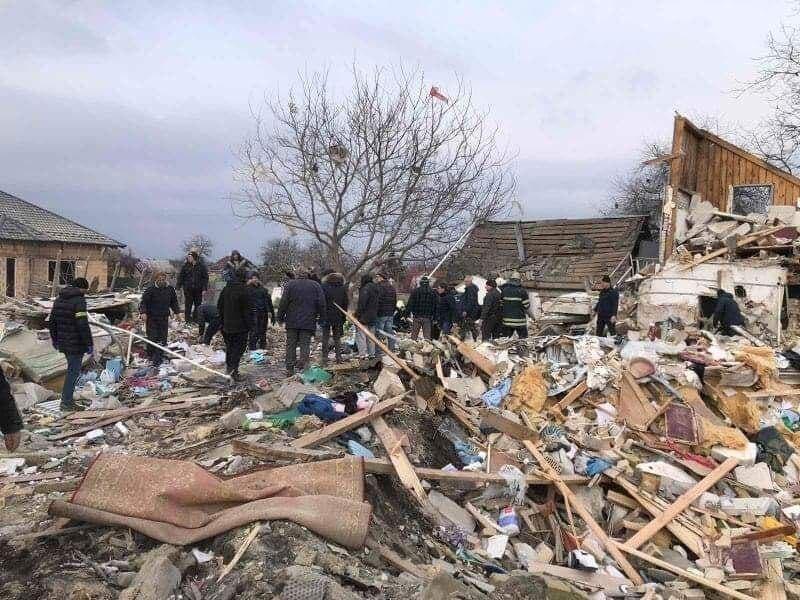Getting your Trinity Audio player ready...
G7 foreign ministers on Friday said they were "deeply concerned" with the humanitarian toll from "Russia's continuing strikes" against Ukraine's civilian population and added they will hold accountable those responsible for war crimes.
"We reemphasize that indiscriminate attacks are prohibited by international humanitarian law. We will hold accountable those responsible for war crimes, including indiscriminate use of weapons against civilians," G7 foreign ministers said in a joint statement released by the U.S. State Department.
6 View gallery
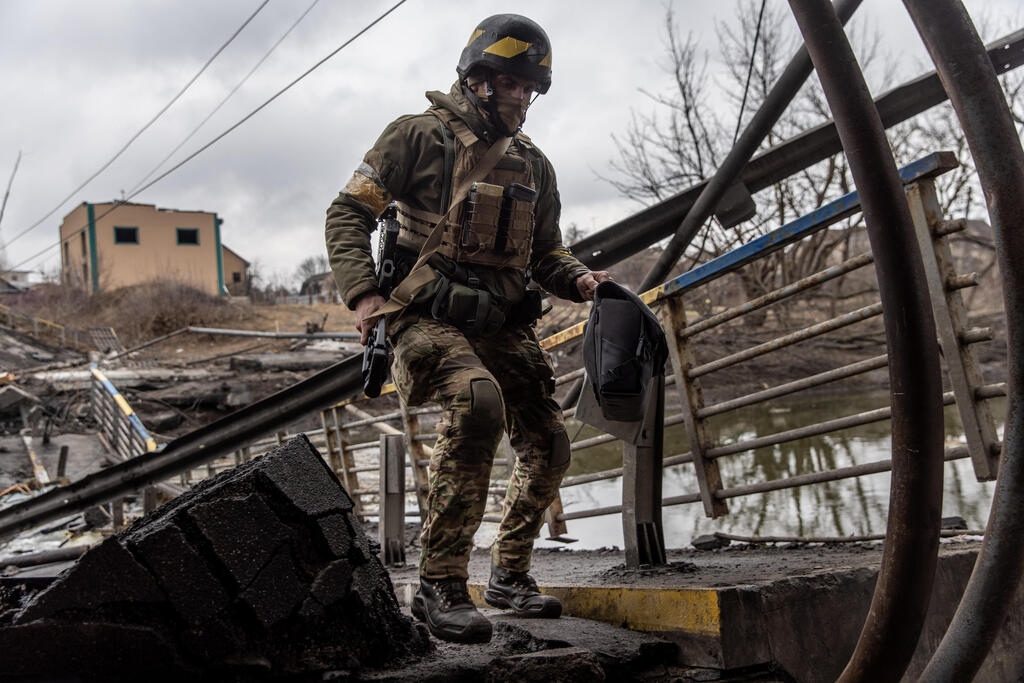

Ukrainian soldiers beside a bridge that collapsed from Russian shelling, in Irpin, Ukraine
(Photo: Gettyimages)
The foreign ministers of Canada, France, Germany, Italy, Japan, UK, and the U.S. also urged Russia to stop attacks in the "vicinity of Ukraine's nuclear power plants."
Russian forces in Ukraine seized Europe's biggest nuclear power plant on Friday in an assault that caused alarm around the world and that Washington said had risked catastrophe, although officials said later that the facility was now safe.
The G7 foreign ministers also added their countries will continue to impose further sanctions in response to Russian aggression, which they said has been enabled by Belarus.
"President Putin, and his government and supporters, and the Lukashenko regime, bear full responsibility for the economic and social consequences of these sanctions", said the joint statement of G7 foreign ministers.
6 View gallery
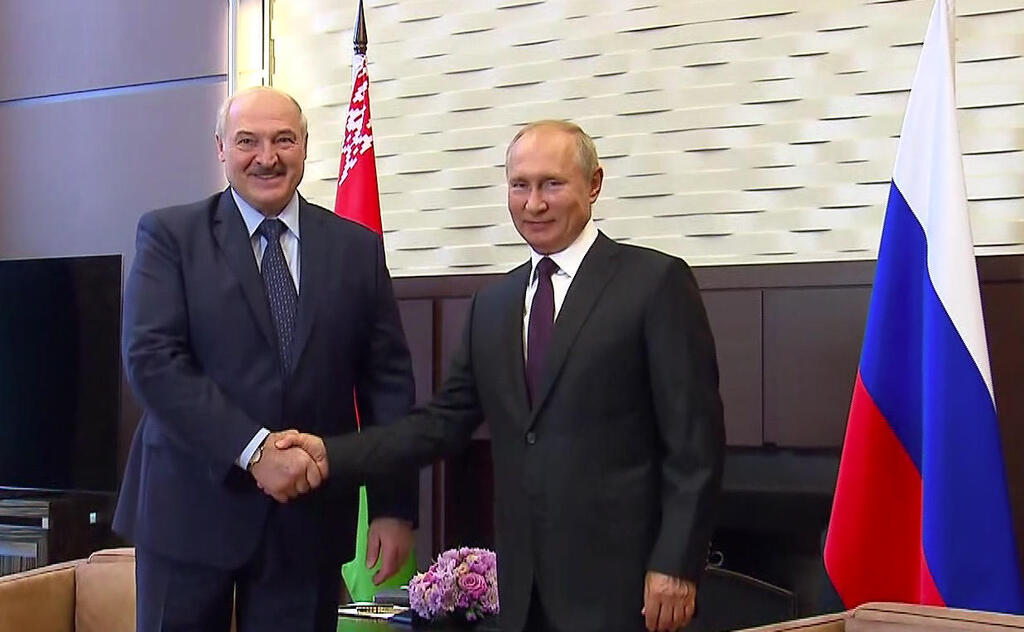

Belarusian President Alexander Lukashenko and Russian counterpart Vladimir Putin
(Photo: EPA)
Russia's invasion of Ukraine last week drew almost universal worldwide condemnation and Western countries imposed heavy sanctions in an effort to squeeze the Russian economy.
The G7 countries also committed to increasing humanitarian support for Ukraine. U.S. Secretary of State Antony Blinken met NATO Secretary-General Jens Stoltenberg and European Council President Charles Michel in Brussels, urging NATO allies and partners to provide Ukraine with equipment and supplies to deal with Russia's invasion.
Meanwhile, NATO on Friday rejected Ukrainian calls to help it protect its skies from Russian missiles and warplanes, wary of being dragged into Moscow's war on its neighbor, but Europe promised more sanctions to punish Russian President Vladimir Putin.
Ukrainian President Volodymyr Zelensky appealed to NATO to set up a no-fly zone over his country, which Russia invaded by land, sea and air on Feb. 24.
"We are not part of this conflict," Stoltenberg said in denying Ukraine's request.
"We have a responsibility as NATO allies to prevent this war from escalating beyond Ukraine because that would be even more dangerous, more devastating and would cause even more human suffering," he said following a NATO meeting in Brussels.
Ukraine, a former Soviet republic, wants to join the European Union and NATO, moves which Moscow says threaten its security and influence. Russia has shelled residential areas and civilian infrastructure, as well as capturing two nuclear sites.
While the West condemned Putin, members of the 30-strong NATO are bound to defend each other in case of attack and are wary of sinking into a war with nuclear-armed Russia. The EU threatened more sanctions but it was not clear what it could do.
U.S. Secretary of State Antony Blinken said the alliance would defend "every inch" of NATO territory and that Moscow should not doubt Washington's resolve.
"Ours is a defensive alliance. We seek no conflict. But if conflict comes to us, we are ready," he said.
"We'll continue to raise the cost for President Putin. Unless the Kremlin changes course, it will continue down the road of increasing isolation and economic pain."
But the alliance - in which the United States, Britain and France are also nuclear powers - dashed Ukraine's hopes of immediate help Kyiv says could turn the tables in the war.
"We should not have NATO planes operating over Ukrainian airspace or NATO troops operating in Ukrainian territory," Stoltenberg said.
More deaths, more sanctions
Support for Ukraine so far has come in the form of the heaviest international economic sanctions against Russia to date, as well as arms supplies from NATO states.
6 View gallery
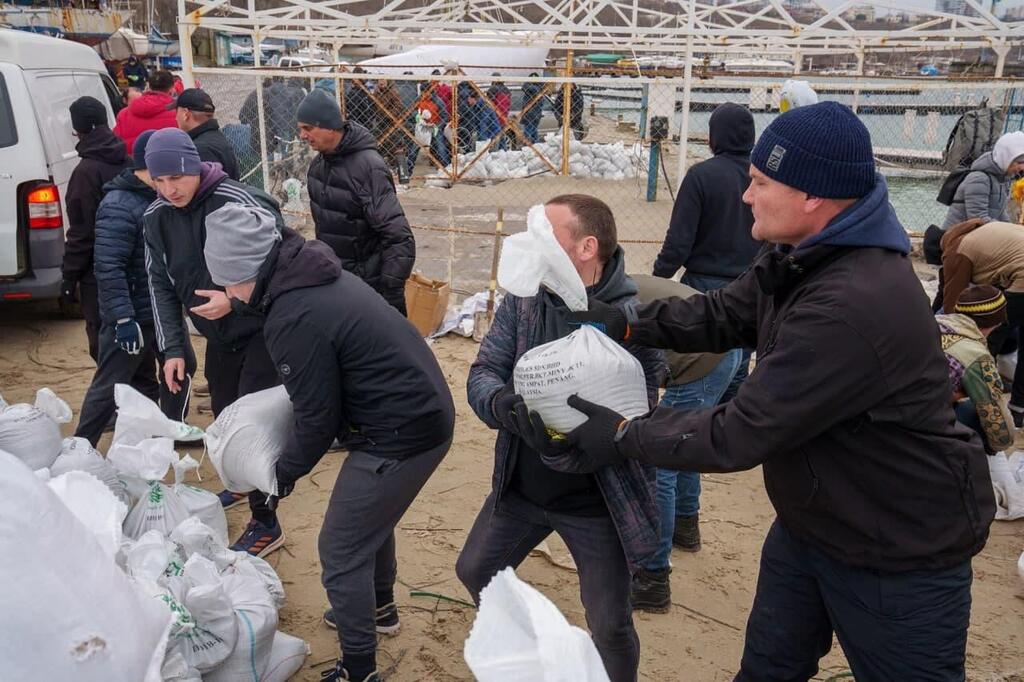

Civilians fill sandbags for protection against Russian invasion, in Odesa, Ukraine
(Photo: Reuters)
On Friday, the West promised Ukraine more humanitarian aid, essential supplies and military support short of going to war.
EU countries said more punishment was coming, after the bloc already cut several Russian lenders from the SWIFT banking system, curbed trade with Moscow and targeted some of the wealth held by Russian oligarchs in the West.
The EU was looking at curbing Russia's access to the International Monetary Fund, officials said.
"It's Putin's war, and only Putin can end it," the top EU diplomat, Josep Borrell, said. "If someone expects that sanctions can stop the war tomorrow, they don't know what they're talking about."
Ukraine called on the West to freeze out all Russian banks. But it was not clear when and what more sanctions the EU could agree, given its reliance on Russian energy supplies, which think tank Eurointelligence said amount to $700 million daily.
Ireland said the EU could hit more Russian banks, bar Russian ships from European ports and cut imports like steel, timber, aluminum or coal.
Ukrainian foreign minister Dmytro Kuleba urged NATO on Friday: "Act now before it's too late."
But Stoltenberg said the worst was yet to come as Russia was rolling out more heavy arms.
"The days to come are likely to be worse, with more deaths, more suffering and more destruction," he said.


